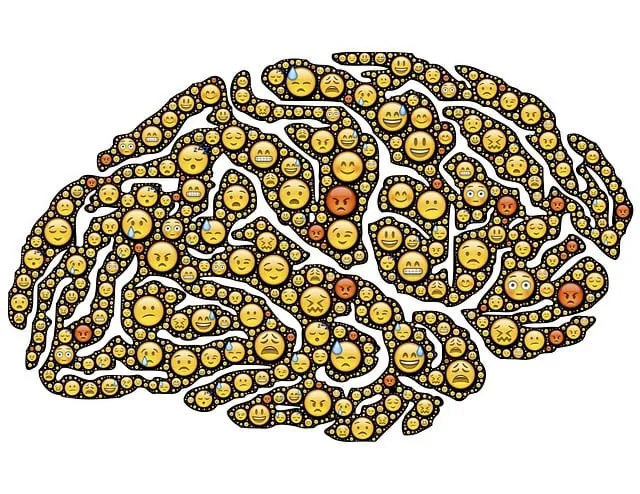Englewood Kaiser Permanente faces challenges in accurately diagnosing mental illness due to complex human emotions, diverse patient populations, and varying expressions of distress. They address this through enhanced clinical training, evidence-based practices, resilience building programs, crisis intervention guidance, and advanced data analytics leveraging electronic health records (EHRs) and machine learning algorithms. Digital assessment tools, trauma support services, workshops, seminars, emotional well-being promotion techniques, and patient-centered approaches further improve diagnosis accuracy and patient outcomes in Englewood Kaiser Permanente's mental health services.
Mental illness diagnosis accuracy at Englewood Kaiser Permanente presents unique challenges, often compounded by complex patient presentations and comorbidities. This article explores innovative strategies aimed at enhancing diagnostic precision. We delve into techniques like advanced assessment tools, training programs for healthcare professionals, technology integration to streamline processes, and patient-centered approaches that empower individuals in their mental health journeys. By examining these efforts, we aim to illuminate promising paths towards more accurate and effective care at Englewood Kaiser Permanente.
- Understanding the Challenges of Mental Illness Diagnosis at Englewood Kaiser Permanente
- Innovative Techniques and Tools for Enhancing Diagnostic Accuracy
- The Role of Training and Education in Improving Diagnosis Quality
- Integrating Technology to Streamline Assessment Processes
- Patient-Centered Approaches: Empowering Individuals for Accurate Diagnoses
Understanding the Challenges of Mental Illness Diagnosis at Englewood Kaiser Permanente

Diagnosing mental illness accurately at Englewood Kaiser Permanente presents unique challenges. The complexity of human emotions and behaviors often leads to misdiagnoses or delayed treatment, impacting patient care and outcomes significantly. With a diverse patient population, healthcare providers must navigate cultural differences, personal histories, and varying expressions of distress to ensure precise assessments.
Englewood Kaiser Permanente’s efforts to improve diagnosis accuracy focus on enhancing clinical training and implementing evidence-based practices. Resilience building programs aim to equip patients with emotional regulation skills, empowering them to seek help promptly. Crisis intervention guidance is also integrated into care protocols, ensuring that healthcare professionals are prepared to handle acute situations effectively. These initiatives strive to create a supportive environment, fostering open conversations about mental health and ultimately improving diagnosis accuracy and patient well-being.
Innovative Techniques and Tools for Enhancing Diagnostic Accuracy

Englewood Kaiser Permanente mental health professionals are at the forefront of embracing innovative techniques and tools to enhance diagnostic accuracy. One such game-changer is the integration of advanced data analytics, which leverages electronic health records (EHRs) to identify patterns and trends in patient symptoms and behaviors. This helps in making more informed decisions, especially when combined with sophisticated machine learning algorithms that can predict potential mental health episodes.
Moreover, digital assessment tools and mobile applications are increasingly being used to screen for common mental health conditions. These user-friendly platforms not only simplify the initial evaluation process but also provide valuable continuous monitoring, enabling early intervention. Additionally, trauma support services have seen significant improvements with the implementation of Empathy Building Strategies, which foster more nuanced interactions between patients and healthcare providers. This, coupled with enhanced risk assessment tools for mental health professionals, ensures a comprehensive approach to diagnosing and managing mental illness, ultimately improving patient outcomes at Englewood Kaiser Permanente.
The Role of Training and Education in Improving Diagnosis Quality

Englewood Kaiser Permanente mental health professionals are at the forefront of a continuous improvement journey aimed at enhancing diagnosis accuracy. A significant aspect of this effort revolves around training and education, which serve as cornerstones for fostering a culture of precision and care. Regular workshops and seminars focus on refining assessment techniques, incorporating the latest research findings, and emphasizing the importance of comprehensive patient history. These sessions not only equip clinicians with advanced diagnostic tools but also promote emotional well-being promotion techniques and burnout prevention strategies, ensuring they remain adept at identifying nuanced mental health conditions.
Moreover, integrating Emotional Well-being Promotion Techniques into clinical practice has become a priority. By encouraging positive thinking and holistic approaches, healthcare providers can minimize potential biases and improve diagnosis quality. This comprehensive approach not only enhances patient outcomes but also contributes to the overall effectiveness of Englewood Kaiser Permanente’s mental health services, setting a benchmark for excellence in mental illness diagnosis accuracy.
Integrating Technology to Streamline Assessment Processes

Englewood Kaiser Permanente mental health professionals are at the forefront of leveraging technology to enhance diagnosis accuracy and improve patient care. With digital tools, assessment processes have become more streamlined, allowing for faster identification of mental health conditions. Online platforms and mobile applications facilitate initial screening, providing a convenient and accessible way for individuals to assess their well-being. These resources often incorporate interactive self-care routine development exercises, encouraging patients to track symptoms and practice self-awareness exercises.
By integrating technology into the diagnostic journey, Englewood Kaiser Permanente aims to reduce stress and promote better mental health outcomes. Self-awareness exercises and stress reduction methods can be easily incorporated into a patient’s daily life, empowering them to actively manage their mental health. This tech-driven approach not only improves diagnosis accuracy but also fosters a sense of agency among individuals seeking support for their mental well-being.
Patient-Centered Approaches: Empowering Individuals for Accurate Diagnoses

At Englewood Kaiser Permanente mental health, patient-centered approaches are revolutionizing diagnosis accuracy. By empowering individuals to actively participate in their care, healthcare providers create an environment that fosters open communication and builds trust. This collaborative model encourages patients to share detailed accounts of their experiences, symptoms, and emotional regulation challenges, leading to more comprehensive evaluations.
Through education and mental health awareness initiatives, patients gain a deeper understanding of their conditions, boosting their confidence in voicing concerns and asking questions. Armed with this knowledge, individuals can actively collaborate with healthcare professionals, ensuring accurate diagnoses and tailored treatment plans that address their unique needs.
The journey towards improving mental illness diagnosis accuracy at Englewood Kaiser Permanente involves a multifaceted approach. By combining innovative techniques, education, technology integration, and patient-centered strategies, the healthcare system can enhance diagnostic quality. These efforts not only benefit individuals seeking support for their mental health but also contribute to more effective treatment planning and overall well-being for patients at Englewood Kaiser Permanente’s mental health services.






